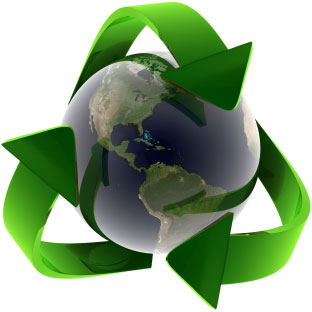Regional centres for green technology spread mooted
 Copenhagen, Dec 18 - As the stormy Dec 7-18 climate summit headed for a climax, it has readied deals on how to pay countries to stop deforestation and to set up regional centres for transfer of green technology to developing countries, a senior UN official said.
Copenhagen, Dec 18 - As the stormy Dec 7-18 climate summit headed for a climax, it has readied deals on how to pay countries to stop deforestation and to set up regional centres for transfer of green technology to developing countries, a senior UN official said.
The setting up of the regional centres was an idea mooted by India during an international meet in New Delhi this October. An Indian official said here Thursday night that the country could host one of the hubs, which are meant to spread green technologies quickly among developing countries.
But India appears to have lost on the forestry proposal, though negotiations were still on through the night. The original proposal for Reducing Emissions through Deforestation and Forest Degradation (REDD) appears to be gaining ground among many of the 192 countries gathered here, and not the REDD Plus proposal of India and China.
The two emerging economies had said that apart from paying countries to stop deforestation, countries that actually added to their forest cover should also be paid. But rich countries appeared to have got cold feet over paying more money to India and China.
However, "in this negotiation process, nothing is agreed till everything is agreed", UN Assistant Under Secretary General for Climate Change Robert Orr told IANS.
He was speaking even as negotiators were going over every word of two agreements they are supposed to finalise by Friday afternoon - one on long-term cooperation under the UN Framework Convention on Climate Change (UNFCCC) and the other under the Kyoto Protocol, the treaty to fight global warming.
Orr, who is in the UN Secretary General's office and assists Ban Ki-moon on climate change, said the current negotiations were difficult because "this has never happened before. For the first time ever, we have heads of state, ministers and negotiators (bureaucrats) in the same room.
"That creates obvious issues of process; there is no roadmap, no precedent. And that is causing confusion. But the presence of world leaders is what is making Copenhagen happen. See the halls and the hallways, there's a gearshift."
He was hopeful that a Copenhagen agreement would emerge, in the form of a political accord.
Recalling what the climate summit had achieved so far, Orr referred to the $10 billion a year fund set up for the next three years to help poor countries cope with climate change effects. "This will have direct and concrete impacts on the poorest and most vulnerable countries and create capacity to handle larger funds later," he said.
But there had so far been no agreement at this summit on who would pay how much. "The burden sharing formula on short- and long-term finance is yet to be worked out," Orr admitted. "Maybe it will be done here, maybe later."
He also said the Copenhagen summit had made many countries commit to reduce or control their greenhouse gas emissions. "Two years back, no country had made mid-term mitigation commitments," Orr pointed out. "Now so many have done it - EU, US, China, India, Brazil, Mexico, Korea."
At the same time, he referred to a major roadblock at the summit. "We have to codify these commitments in a way acceptable to all." On the penultimate day of the summit, the issue re-kindled a spat between the US and China.
The UN official admitted that all the mitigation pledges put together would still keep the carbon dioxide level in the atmosphere about 10 gigatonnes above what was required to keep global temperature rise within two degrees.
"But it will create significant carbon markets which will change dynamics" and lead to more mitigation than promised, he predicted.
Orr said that if the REDD deal went through as planned, it would become a "major funding stream". Deforestation is responsible for about 20 percent of emissions of greenhouse gases that are warming the world.
The UN official revealed that the Secretary General and the World Bank chief had recently written a joint letter to many heads of state, suggesting a "joint architecture under the UN and the Bank" on how REDD money could be administered.
"This is a major development not being talked about here," Orr said. "And there's the technology transfer deal that is ready. The regional technology centres will form a mechanism to let funding come on line."
Asked what he expected to come out of the Copenhagen summit, Orr said he was looking forward to a strong political agreement, though its "length and shape" were yet to be decided. (IANS)